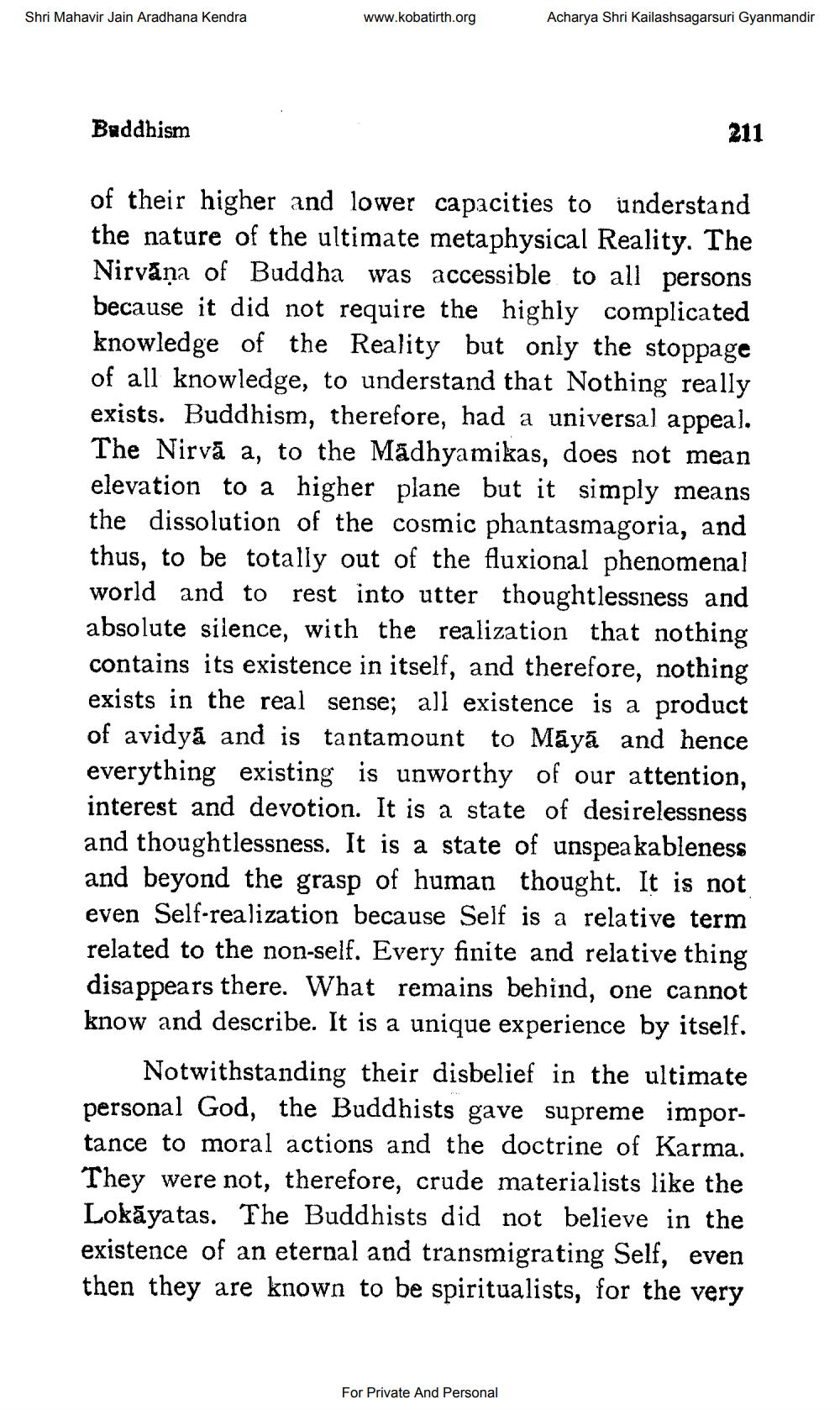________________
Shri Mahavir Jain Aradhana Kendra
www.kobatirth.org
Acharya Shri Kailashsagarsuri Gyanmandir
Buddhism
211
of their higher and lower capacities to understand the nature of the ultimate metaphysical Reality. The Nirvana of Buddha was accessible to all persons because it did not require the highly complicated knowledge of the Reality but only the stoppage of all knowledge, to understand that Nothing really exists. Buddhism, therefore, had a universal appeal. The Nirvā a, to the Mādhyamikas, does not mean elevation to a higher plane but it simply means the dissolution of the cosmic phantasmagoria, and thus, to be totally out of the fluxional phenomenal world and to rest into utter thoughtlessness and absolute silence, with the realization that nothing contains its existence in itself, and therefore, nothing exists in the real sense; all existence is a product of avidya and is tantamount to Māyā and hence everything existing is unworthy of our attention, interest and devotion. It is a state of desirelessness and thoughtlessness. It is a state of unspeakableness and beyond the grasp of human thought. It is not even Self-realization because Self is a relative term related to the non-self. Every finite and relative thing disappears there. What remains behind, one cannot know and describe. It is a unique experience by itself.
Notwithstanding their disbelief in the ultimate personal God, the Buddhists gave supreme importance to moral actions and the doctrine of Karma. They were not, therefore, crude materialists like the Lokāyatas. The Buddhists did not believe in the existence of an eternal and transmigrating Self, even then they are known to be spiritualists, for the very
For Private And Personal




